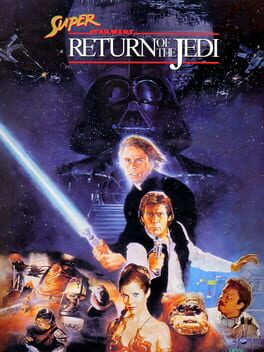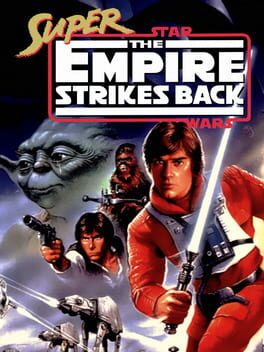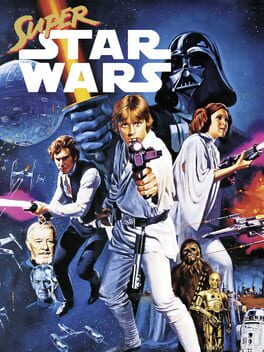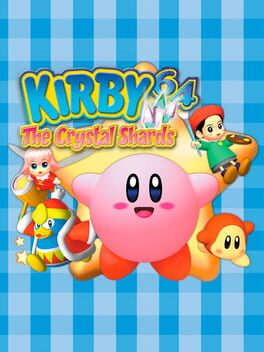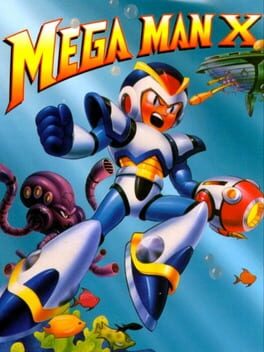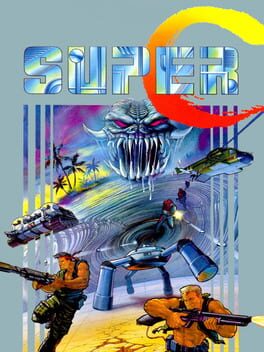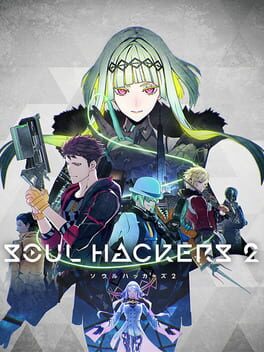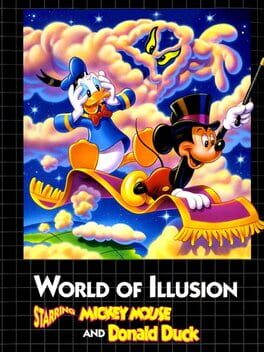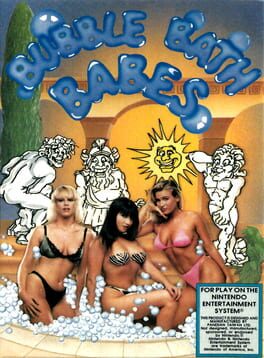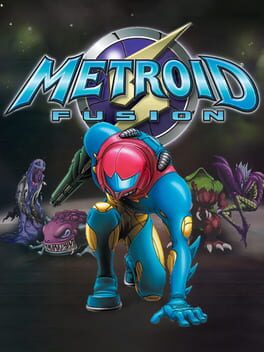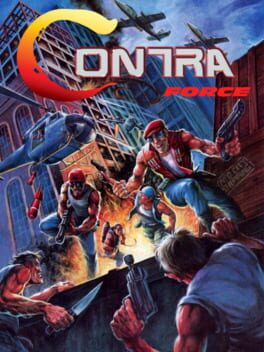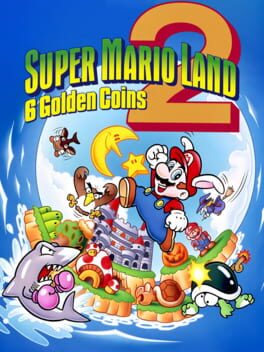I've talked before about how some games leave such an impact on me that they become inextricably linked to a certain memory, time, or place. The Legend of Zelda: Majora's Mask doesn't conjure up a particularly potent memory, or one that is all that interesting, but which has nonetheless left me nostalgic. I remember paying this sitting maybe two feet from the TV (contrary to popular belief, this will not ruin your eyes and is in fact the coolest way to play video games) waiting for Thanksgiving dinner to be ready and wasting hours trying to make heads or tails of its bizarre time looping system. I didn't make it very far. I was a very stupid child - who has become a very stupid man - and at that point in time I was not mentally prepared to chain together any sequence of actions needed to progress.
As an adult, I think that's why I love Majora's Mask so much. A lot of Zelda puzzles are pretty braindead. These are games ostensibly designed for children, after all. But Majora's Mask demands a little bit more thinking out of you, it expects that you engage with its world and its time loop critically and it's not sorry if you don't "get it." Even coming back to it today I find myself needing to pull the Nintendo Player's Guide off my shelf and thumb through its pages for hints, and I gotta admit, that's a pretty good feeling.
There's been a lot written about its darker, edgier atmosphere, or how unnerving and dream-like tone is. And yeah, it's definitely got a more haunting quality to it than any other Zelda game. Anyone who has been following my reviews for any length of time has probably picked up on the fact that I love games with bizarro atmospheres.
There's also a subset of people who desperately want the game to have a more insidious tone than it already does, which I know is a pretty common thing with any kids-oriented media that gets even slightly dark. Lore theorists are rotten creatures, and there's some real psycho shit out there. This is perhaps not even worth bringing up, but I do think part of Majora's Mask's enduring legacy is due to its mysterious, haunting tone, and there's a side to that coin that makes me wanna barf.
You know what else makes me wanna barf? Some of these minigames! I decided to take on the absolutely demented task of 100%ing this game. Some of the side quests can be pretty difficult if not actively unfun, but the reward you get for satisfying the many demands of Termina's residents is pretty satisfying. Obviously the best way to enjoy the game is to take on however much of it feels right to you, and personally I think I'm happier just sticking mostly to the story. Though there are only four main dungeons, each one of them is a total banger, and there's plenty to do to even gain access to them to fill the void. Majora's Mask can definitely seem like a much smaller game than Ocarina at first glance, but it's still pretty meaty.
I also think the main time looping mechanic is a lot of fun. I know some people bounce off of it immediately and I don't blame them. Again, it seems pretty staggering at first and it can be easy to lose sight of how everything you're doing is meant to click together. However, it remains one of the most inventive systems in any Zelda game, and it's remarkable how well it holds up (though there's definitely some QoL issues.) Once you complete a few tasks and get a feel for how it works, it becomes a lot easier to find the rhythm of Majora's Mask's puzzles.
This was the last game I played in 2019, and one I was a little apprehensive to play. I inherited a CIB copy from my grandfather after he passed, along with a bunch of other games we played together when I was a kid. I was surprised to see how good the condition of the box was, as well as its contents. The manual is pristine, and the cart looks brand new. In fact, it was still inside its plastic wrap, which was cleanly opened at the top but nevertheless kept the game itself safe from wear.
I loaded it up and saw my grandpa played 2 hours of this game and gave the fuck up. So, that explains a lot. But hey, at least it has a completed file now.
As an adult, I think that's why I love Majora's Mask so much. A lot of Zelda puzzles are pretty braindead. These are games ostensibly designed for children, after all. But Majora's Mask demands a little bit more thinking out of you, it expects that you engage with its world and its time loop critically and it's not sorry if you don't "get it." Even coming back to it today I find myself needing to pull the Nintendo Player's Guide off my shelf and thumb through its pages for hints, and I gotta admit, that's a pretty good feeling.
There's been a lot written about its darker, edgier atmosphere, or how unnerving and dream-like tone is. And yeah, it's definitely got a more haunting quality to it than any other Zelda game. Anyone who has been following my reviews for any length of time has probably picked up on the fact that I love games with bizarro atmospheres.
There's also a subset of people who desperately want the game to have a more insidious tone than it already does, which I know is a pretty common thing with any kids-oriented media that gets even slightly dark. Lore theorists are rotten creatures, and there's some real psycho shit out there. This is perhaps not even worth bringing up, but I do think part of Majora's Mask's enduring legacy is due to its mysterious, haunting tone, and there's a side to that coin that makes me wanna barf.
You know what else makes me wanna barf? Some of these minigames! I decided to take on the absolutely demented task of 100%ing this game. Some of the side quests can be pretty difficult if not actively unfun, but the reward you get for satisfying the many demands of Termina's residents is pretty satisfying. Obviously the best way to enjoy the game is to take on however much of it feels right to you, and personally I think I'm happier just sticking mostly to the story. Though there are only four main dungeons, each one of them is a total banger, and there's plenty to do to even gain access to them to fill the void. Majora's Mask can definitely seem like a much smaller game than Ocarina at first glance, but it's still pretty meaty.
I also think the main time looping mechanic is a lot of fun. I know some people bounce off of it immediately and I don't blame them. Again, it seems pretty staggering at first and it can be easy to lose sight of how everything you're doing is meant to click together. However, it remains one of the most inventive systems in any Zelda game, and it's remarkable how well it holds up (though there's definitely some QoL issues.) Once you complete a few tasks and get a feel for how it works, it becomes a lot easier to find the rhythm of Majora's Mask's puzzles.
This was the last game I played in 2019, and one I was a little apprehensive to play. I inherited a CIB copy from my grandfather after he passed, along with a bunch of other games we played together when I was a kid. I was surprised to see how good the condition of the box was, as well as its contents. The manual is pristine, and the cart looks brand new. In fact, it was still inside its plastic wrap, which was cleanly opened at the top but nevertheless kept the game itself safe from wear.
I loaded it up and saw my grandpa played 2 hours of this game and gave the fuck up. So, that explains a lot. But hey, at least it has a completed file now.
1995
At this point it almost feels contrarian to say that Chrono Trigger is pretty good but far from the best JRPG of all time.
I had the benefit of not playing this one or having any direct exposure to it as a kid. In fact, I might not have even known it existed until sometime around 2000 when a friend of mine started playing Chrono Cross. My lack of attachment for the series still causes me to confuse the titles of both games.
I played this for the first time only a couple years ago, and partly because I was trying to impress someone who was a fan of the game. I was pleasantly surprised! It's pretty good, and while I don't think it totally lives up to the hype, I had a great time with it.
For me the draw was mainly its story and characters. I found each member of your main party to be pretty charming, and it's a lot of fun to screw around in the different epochs and see how things change. It's also very novel that you can challenge the final boss at any time and get a number of different endings depending on what you've done prior to taking him on. However, I found the game to be very slow paced in places and am also not very likely to go after additional endings because of that. Combat in particular feels like a slog, I just didn't find it to be very dynamic or interesting until later in the game when it starts to demand more of you.
It also has Frog. How can you possibly hate a game with Frog?
I had the benefit of not playing this one or having any direct exposure to it as a kid. In fact, I might not have even known it existed until sometime around 2000 when a friend of mine started playing Chrono Cross. My lack of attachment for the series still causes me to confuse the titles of both games.
I played this for the first time only a couple years ago, and partly because I was trying to impress someone who was a fan of the game. I was pleasantly surprised! It's pretty good, and while I don't think it totally lives up to the hype, I had a great time with it.
For me the draw was mainly its story and characters. I found each member of your main party to be pretty charming, and it's a lot of fun to screw around in the different epochs and see how things change. It's also very novel that you can challenge the final boss at any time and get a number of different endings depending on what you've done prior to taking him on. However, I found the game to be very slow paced in places and am also not very likely to go after additional endings because of that. Combat in particular feels like a slog, I just didn't find it to be very dynamic or interesting until later in the game when it starts to demand more of you.
It also has Frog. How can you possibly hate a game with Frog?
I've reviewed the first two Super Star Wars games and I don't really have anything particularly unique to say about this one. It's not like each entry in this series brought with it any spectacular changes, and I think whatever your feelings are on one will generally apply to the others.
That said, it does feel like Jedi has a lot more blind jumps, especially in the first level. Just constantly making leaps of faith and hoping you don't drop into a pit or directly on top of an enemy (who will probably be unfazed by this and murder you immediately.) The last few levels are also Super Star Wars at its most brutal. I feel these games are so aggressively difficult that it tends to make it hard to perceive the difficulty curve, but Jedi's finale is especially agonizing.
No funny anecdote to share on this one, I think? Uhhh... I liked the two Ewoks movies as a kid. That's not really funny though, just sad.
That said, it does feel like Jedi has a lot more blind jumps, especially in the first level. Just constantly making leaps of faith and hoping you don't drop into a pit or directly on top of an enemy (who will probably be unfazed by this and murder you immediately.) The last few levels are also Super Star Wars at its most brutal. I feel these games are so aggressively difficult that it tends to make it hard to perceive the difficulty curve, but Jedi's finale is especially agonizing.
No funny anecdote to share on this one, I think? Uhhh... I liked the two Ewoks movies as a kid. That's not really funny though, just sad.
I was about 6-years-old when my mom discovered I hadn't seen any of the Star Wars movies, something that came as a surprise to her despite the fact that she really should've known. It wasn't like I lived with anyone else other than her. Very attentive, that woman. But once she realized this, she rushed out and borrowed all three movies from a friend so I could watch them over a weekend. I had just gotten to the fight between Darth Vader and Luke on Cloud City when she came into the room and casually asked "Did you get to the part where Darth Vader tells Luke he's his father?"
I hadn't. Before that, I didn't even know he was. The twist had been stolen from me in that moment, and I have to believe this was by design.
Anyway, The Empire Strikes back is the best film in the trilogy (I'd argue it's the one thing propping up the entire franchise by this point, but that's neither here nor there), and at least as far as the Super Star Wars trilogy of games goes, it miiiight be the best one too? It's a little hard to say. It's certainly better than the original Super Star Wars, but I think it's pretty debatable whether or not Super Return of the Jedi is the superior entry.
The usual bullshit is here. Enemies are absolutely relentless, and they will flood the screen just to get a taste of your blood. Levels are long and sometimes difficult to navigate, but you get some cool vehicle stages to break up the pace. Lot of good Mode 7 in the Super Star Wars trilogy. You're also able to play as multiple characters with each having their own style of play. There's a good amount of variety here that keeps the game from getting stale.
Really, the previous review for Super Star Wars largely applies, I just like Empire's setting and source material more, and I feel the level design is a bit better in this one, so it gets an extra half star. Anyway, what's up with Luke using Obi Wan's lightsaber on the cover? Uh, not canon!
I hadn't. Before that, I didn't even know he was. The twist had been stolen from me in that moment, and I have to believe this was by design.
Anyway, The Empire Strikes back is the best film in the trilogy (I'd argue it's the one thing propping up the entire franchise by this point, but that's neither here nor there), and at least as far as the Super Star Wars trilogy of games goes, it miiiight be the best one too? It's a little hard to say. It's certainly better than the original Super Star Wars, but I think it's pretty debatable whether or not Super Return of the Jedi is the superior entry.
The usual bullshit is here. Enemies are absolutely relentless, and they will flood the screen just to get a taste of your blood. Levels are long and sometimes difficult to navigate, but you get some cool vehicle stages to break up the pace. Lot of good Mode 7 in the Super Star Wars trilogy. You're also able to play as multiple characters with each having their own style of play. There's a good amount of variety here that keeps the game from getting stale.
Really, the previous review for Super Star Wars largely applies, I just like Empire's setting and source material more, and I feel the level design is a bit better in this one, so it gets an extra half star. Anyway, what's up with Luke using Obi Wan's lightsaber on the cover? Uh, not canon!
1992
Star Wars was always this big cultural phenomenon, but there did exist a point in time between the original trilogy and the prequels where you could actually take a god damn breath before hearing about more awful Star Wars shit. Now days there's a new controversy every single week. Actors regularly get death threats, and ~content creators~ are profiting off a cottage industry built entirely around being Mad About Star Wars.
Back in my day, the only time I ever saw someone throwing a fit over Star Wars was because they kept dying in the cantina in Super Star Wars. These were better times. We were more civilized then.
I had pretty limited exposure to the Super Star Wars trilogy, having mostly screwed around in them at a friend's house back in the day. I think I rented Return of the Jedi once along with an SNES and just used cheat codes to experience as much of the game as I could. I always had a hell of a time with them. They're hard games and I don't think there's any shame in admitting that.
Coming back to Super Star Wars as an adult, it's every bit as much of a pain in the ass as I remember. No less, no more. The sort of game you turn on and five minutes in find yourself saying "oh right, this bullshit." Enemies flood the screen, respawn rates are absolutely insane, hazards are placed too close together making a lot of jumps inherently unsafe... But I still kinda like it. For as cheap as it is, the game still feels pretty good to play, and when you do end up clearing a level there's a real sense of accomplishment that goes along with it. It's one of those games where forward progress is made because you don't want to let the game beat you, where you "get good" out of sheer obstinance, if not outright hatred.
However, I do question whether my fondness for Super Star Wars is based primarily in nostalgia or not. I certainly see its many faults, but had I not played this back in 90s maybe it would be easier to dismiss it entirely, call it a bad game and move on. Yet, I can't. I still come back to this one regularly, and every time I do it finds some way to piss me off. Just like Star Wars.
Back in my day, the only time I ever saw someone throwing a fit over Star Wars was because they kept dying in the cantina in Super Star Wars. These were better times. We were more civilized then.
I had pretty limited exposure to the Super Star Wars trilogy, having mostly screwed around in them at a friend's house back in the day. I think I rented Return of the Jedi once along with an SNES and just used cheat codes to experience as much of the game as I could. I always had a hell of a time with them. They're hard games and I don't think there's any shame in admitting that.
Coming back to Super Star Wars as an adult, it's every bit as much of a pain in the ass as I remember. No less, no more. The sort of game you turn on and five minutes in find yourself saying "oh right, this bullshit." Enemies flood the screen, respawn rates are absolutely insane, hazards are placed too close together making a lot of jumps inherently unsafe... But I still kinda like it. For as cheap as it is, the game still feels pretty good to play, and when you do end up clearing a level there's a real sense of accomplishment that goes along with it. It's one of those games where forward progress is made because you don't want to let the game beat you, where you "get good" out of sheer obstinance, if not outright hatred.
However, I do question whether my fondness for Super Star Wars is based primarily in nostalgia or not. I certainly see its many faults, but had I not played this back in 90s maybe it would be easier to dismiss it entirely, call it a bad game and move on. Yet, I can't. I still come back to this one regularly, and every time I do it finds some way to piss me off. Just like Star Wars.
Kirby, you have crystals here that are 2 inches, 3 inches long. Yo, this is glass grade!
By the year 2000, most of Kirby's platforming counterparts had fully made the transition to 3D. Collectathons were king, and 2D platformers were becoming an increasing rarity. If there was ever a time to make the leap, it was then.
But rather than trying to adapt Kirby's gameplay and appeal to a 3D space (something Kirby's contemporaries were finding mixed success with), director Shinichi Shimomura and his team at HAL decided to keep Kirby firmly planted in 2D for his Nintendo 64 outing. Without the need to totally reinvent Kirby, HAL was able to evolve and refine what they already knew. The Crystal Shards is a pure distillation of what made the series work up to that point, and it comes pretty damn close to perfection as a result.
The Nintendo 64 allowed Shimomura and his team to create more dynamic set pieces and larger, more complicated boss battles. Everything here feels bombastic without losing sight of Kirby's cute, sugary sweet aesthetic. The story remains pretty simple and straight-forward, and is told through charming cutscenes that add just the right amount of flavor without being intrusive. It's fun to see Kirby's partners pop up in a level, though it's also a little bit of a bummer that you can't play as any of them. This is more than made up for by allowing Kirby to combine copy abilities, which allows for a lot of experimentation. I wasted a fair amount of time just running around and fusing abilities together to see what I could make, and it feels so natural that I often confuse myself into thinking it was a feature long baked into the series prior to The Crystal Shards.
Kirby 64 is a fantastic conclusion to the "Dark Matter Trilogy," and is easily my favorite game in the entire franchise.
It was also the second to last Kirby game director Shimomura worked on before... evaporating into thin air? I looked up what games he worked on and noticed he bowed out of the industry somewhere around 2002, with Nightmare in Dreamland being his last credit. Any attempt to find out why he left or what he's been up to has turned up numerous conspiracy theories, from Shimomura dying to having never existed in the first place. Perhaps this is appropriate in a way. There's an eeriness that's always lurking just beneath the surface in Kirby games, and so too is there something hauntingly mysterious about their development... Or maybe he just retired. who da hell knows
By the year 2000, most of Kirby's platforming counterparts had fully made the transition to 3D. Collectathons were king, and 2D platformers were becoming an increasing rarity. If there was ever a time to make the leap, it was then.
But rather than trying to adapt Kirby's gameplay and appeal to a 3D space (something Kirby's contemporaries were finding mixed success with), director Shinichi Shimomura and his team at HAL decided to keep Kirby firmly planted in 2D for his Nintendo 64 outing. Without the need to totally reinvent Kirby, HAL was able to evolve and refine what they already knew. The Crystal Shards is a pure distillation of what made the series work up to that point, and it comes pretty damn close to perfection as a result.
The Nintendo 64 allowed Shimomura and his team to create more dynamic set pieces and larger, more complicated boss battles. Everything here feels bombastic without losing sight of Kirby's cute, sugary sweet aesthetic. The story remains pretty simple and straight-forward, and is told through charming cutscenes that add just the right amount of flavor without being intrusive. It's fun to see Kirby's partners pop up in a level, though it's also a little bit of a bummer that you can't play as any of them. This is more than made up for by allowing Kirby to combine copy abilities, which allows for a lot of experimentation. I wasted a fair amount of time just running around and fusing abilities together to see what I could make, and it feels so natural that I often confuse myself into thinking it was a feature long baked into the series prior to The Crystal Shards.
Kirby 64 is a fantastic conclusion to the "Dark Matter Trilogy," and is easily my favorite game in the entire franchise.
It was also the second to last Kirby game director Shimomura worked on before... evaporating into thin air? I looked up what games he worked on and noticed he bowed out of the industry somewhere around 2002, with Nightmare in Dreamland being his last credit. Any attempt to find out why he left or what he's been up to has turned up numerous conspiracy theories, from Shimomura dying to having never existed in the first place. Perhaps this is appropriate in a way. There's an eeriness that's always lurking just beneath the surface in Kirby games, and so too is there something hauntingly mysterious about their development... Or maybe he just retired. who da hell knows
1993
I know people are very particular about how games in the Mega Man X series stack up to each other. Among them, the original seems to be the most sacred of cows. One of the SNES' most well known and beloved action platformers; its set pieces, brilliant tutorial level, robot masters, sprite work, and suit upgrades are beyond reproach.
I am begging you to not come to my home and slash my neck for thinking it's just average.
Mega Man X is a game I've attempted to play numerous times going back to the 1990s, but could never get further than a couple levels into before bouncing off and doing something else. I'm not even sure exactly what it is, something about this game has just never really clicked for me despite my repeated attempts to enjoy it. Maybe it's a hype thing, maybe I just find the controls too stiff and slow despite how energetic the game presents itself.
Out of the original SNES trilogy, I think it's probably the weakest. It's a solid baseline that X2 expands upon greatly, and despite X3 feeling like a bit of a step back from X2, it lets you play as Zero and that tickles the right neurons in my dumb bad dumb-dumb idiot brain.
Of course this isn't to say that Mega Man X hasn't earned its praise or that people need to do a more critical reevaluation of the game. I think this is just one of those instances of something being very good but lacking a certain undefinable element crucial to connecting with me. We all have games like that. It's normal. I'm normal.
I am begging you to not come to my home and slash my neck for thinking it's just average.
Mega Man X is a game I've attempted to play numerous times going back to the 1990s, but could never get further than a couple levels into before bouncing off and doing something else. I'm not even sure exactly what it is, something about this game has just never really clicked for me despite my repeated attempts to enjoy it. Maybe it's a hype thing, maybe I just find the controls too stiff and slow despite how energetic the game presents itself.
Out of the original SNES trilogy, I think it's probably the weakest. It's a solid baseline that X2 expands upon greatly, and despite X3 feeling like a bit of a step back from X2, it lets you play as Zero and that tickles the right neurons in my dumb bad dumb-dumb idiot brain.
Of course this isn't to say that Mega Man X hasn't earned its praise or that people need to do a more critical reevaluation of the game. I think this is just one of those instances of something being very good but lacking a certain undefinable element crucial to connecting with me. We all have games like that. It's normal. I'm normal.
1990
It is against the law to put "Super" in the title of your game if it's not on the Super Nintendo.
Besides that, very solid follow up to Contra. More of the same (with some overhead levels), but the difficulty is ramped way the hell up. I played this one with save states, and you cannot make me feel shame for this.
Besides that, very solid follow up to Contra. More of the same (with some overhead levels), but the difficulty is ramped way the hell up. I played this one with save states, and you cannot make me feel shame for this.
2022
Nobody sets out to make a mediocre game.
Soul Hackers 2 is the most quintessentially "B-team" game, for better and for worse. On one hand, this afforded the team the freedom to push the envelope, and on the other it meant hamstringing them with few resources, a tight deadline, and almost no budget. Soul Hackers 2 was sent out to die, and considering how poorly it has been performing, I genuinely worry this might spook Atlus from making future attempts at reviving long dormant side series.
That about sums up my thoughts on Soul Hackers 2, so if you want to bail now I won't blame you. But I paid my money, and I played this game for sixty hours, so I'm going to get into the weeds on this one.
Soul Hackers 2 ditches the press-turn battle system that has been the mechanical bedrock of Shin Megami Tensei since Nocturne way back on the Playstation 2. A bold choice considering how tired and true it is. In its place is the Sabbath system, or "stacks," wherein striking weaknesses adds demons to an all-out attack that caps off your party's turn. These sabbaths can be further augmented by skills that allow you to build additional stacks when striking weaknesses, abilities that let you alter the conditions under which stacks are accumulated, or by adding modifiers to sabbaths that allow your party to heal or inflict status ailments.
While I do find this system to be surprisingly dynamic, it feels a little underbaked as well. Enemies cannot initiate their own sabbaths, so having your weaknesses exploited comes with little consequence, and enemies seem to be more spongy so as to prevent you from steamrolling every single encounter. Though it's not perfect, I do appreciate Soul Hackers 2 for attempting to do something fresh when the franchise has become so mechanically stagnant.
It is then a little bizarre how regressive the dungeons feel. They straight up look like something out of Persona 4, both in layout and graphical fidelity. I don't mind dungeon crawling - hell, I enjoy the SNES Shin Megami Tenseis, but Persona 5's carefully considered dungeons and Shin Megami Tensei V's open areas makes Soul Hackers 2 feel positively antiquated by comparison. Lazily designed teleporter puzzles are about as much as you get for variety, and of the eight main dungeons, six flip assets with each other.
You can take odd jobs between story missions, though it's almost impressive how little variety there is between them. You'll largely be running variants of the same six or so errands over and over again, though you only get about three or four at a time so they're easy enough to knock out. You can also explore The Axis, a massive maze that wants very badly to be The Labyrinth of Amala, but (much like the rest of the dungeons) is just the same bland looking corridors repeated over and over and over and over again. Amala at least looked more grotesque and organic the further in you explored, with increasingly complex puzzles and dangerous hazards making each trek more harrowing than the last. Unfortunately, if you want some of the best character upgrades in the game, you need to make repeated trips to the Axis. Put a podcast on, get comfortable, you're going to be there a while.
You can also now send your demons out on "recon," which happens automatically whenever you enter a dungeon. You can find your demons scattered about as you explore, and speaking to them will reward you with cash, crafting materials, items, or the ability to negotiate with new demons. That's right, you cannot negotiate in battle. Instead, you have to hope that you chance upon one of your demons and then randomly speak with a new demon you may or may not already have. To be fair, I never failed a negotiation, but this system also makes it really dependent on luck if you'll even have a shot at a demon you want. Of course you can always fuse demons to get something more desirable, although even this feels lackluster as fusion has been stripped down to its bare essentials.
I suppose the last thing worth noting is the story. It's fine. The writing is very iffy for the first few hours. I think the Persona games are very good at getting you to care about characters right away, but I found the main cast of Soul Hackers 2 unlikable until I spent a good amount of time with them. This is probably due in part to them behaving so abrasively towards each other and having very little context to their backstories for quite some time. However, as the hours have marched on I found that I like this dynamic quite a bit. You (as Ringo, the protagonist) form a party with three other characters who seem to align broadly with "law," "chaos," and "neutrality." It's only natural that these people and their wildly different ideologies would be at each others throats, and indeed if it weren't for Ringo the entire group would fall apart immediately. I like that. I like a cast of characters who share common goals but under any other circumstance would be enemies, I think it's fun. It's a good thing too, because the main plot of Soul Hackers 2 isn't anything to write home about.
A lot has been said about Soul Hackers 2's graphics and performance, and for that I'd just suggest watching Digital Foundry's teardown for an idea of what to expect. Soul Hackers 2 is certainly going for a capital-A ~Aesthetic~, but its low fidelity works against it at every possible turn. It also runs like garbage. The PS5 seems to come out on top with this one, but I found load times to be bizarrely long and frequent (this can be solved by setting tips on the loading screen to advance with a button press, for some reason), a little hitchy in places, and experienced random brief instances of the graphics suddenly blurring.
In the wake of Soul Hackers 2 selling so poorly, I've seen a lot of people beat the drum that it should've come out on the Switch, arguing that SMTV ran just fine, and so would Soul Hackers 2. Sure, maybe it would've sold a few more copies, but with the Xbox One S barely being able to lock down 16fps in some areas I'd really have to wonder if it'd be a particularly good way to play. Shin Megami Tensei V had a budget, it had a long development cycle, and it had the full care and attention of Atlus. Every problem with Soul Hackers 2 from the execution of its mechanics to its dismal performance is attributable to Atlus needing to make their Q3 revenue spreadsheets look a little bit better. No matter what system you play it on and regardless of its technical performance, Soul Hackers 2 cannot escape mediocrity.
What a shame. At least it has a good battle theme.
Soul Hackers 2 is the most quintessentially "B-team" game, for better and for worse. On one hand, this afforded the team the freedom to push the envelope, and on the other it meant hamstringing them with few resources, a tight deadline, and almost no budget. Soul Hackers 2 was sent out to die, and considering how poorly it has been performing, I genuinely worry this might spook Atlus from making future attempts at reviving long dormant side series.
That about sums up my thoughts on Soul Hackers 2, so if you want to bail now I won't blame you. But I paid my money, and I played this game for sixty hours, so I'm going to get into the weeds on this one.
Soul Hackers 2 ditches the press-turn battle system that has been the mechanical bedrock of Shin Megami Tensei since Nocturne way back on the Playstation 2. A bold choice considering how tired and true it is. In its place is the Sabbath system, or "stacks," wherein striking weaknesses adds demons to an all-out attack that caps off your party's turn. These sabbaths can be further augmented by skills that allow you to build additional stacks when striking weaknesses, abilities that let you alter the conditions under which stacks are accumulated, or by adding modifiers to sabbaths that allow your party to heal or inflict status ailments.
While I do find this system to be surprisingly dynamic, it feels a little underbaked as well. Enemies cannot initiate their own sabbaths, so having your weaknesses exploited comes with little consequence, and enemies seem to be more spongy so as to prevent you from steamrolling every single encounter. Though it's not perfect, I do appreciate Soul Hackers 2 for attempting to do something fresh when the franchise has become so mechanically stagnant.
It is then a little bizarre how regressive the dungeons feel. They straight up look like something out of Persona 4, both in layout and graphical fidelity. I don't mind dungeon crawling - hell, I enjoy the SNES Shin Megami Tenseis, but Persona 5's carefully considered dungeons and Shin Megami Tensei V's open areas makes Soul Hackers 2 feel positively antiquated by comparison. Lazily designed teleporter puzzles are about as much as you get for variety, and of the eight main dungeons, six flip assets with each other.
You can take odd jobs between story missions, though it's almost impressive how little variety there is between them. You'll largely be running variants of the same six or so errands over and over again, though you only get about three or four at a time so they're easy enough to knock out. You can also explore The Axis, a massive maze that wants very badly to be The Labyrinth of Amala, but (much like the rest of the dungeons) is just the same bland looking corridors repeated over and over and over and over again. Amala at least looked more grotesque and organic the further in you explored, with increasingly complex puzzles and dangerous hazards making each trek more harrowing than the last. Unfortunately, if you want some of the best character upgrades in the game, you need to make repeated trips to the Axis. Put a podcast on, get comfortable, you're going to be there a while.
You can also now send your demons out on "recon," which happens automatically whenever you enter a dungeon. You can find your demons scattered about as you explore, and speaking to them will reward you with cash, crafting materials, items, or the ability to negotiate with new demons. That's right, you cannot negotiate in battle. Instead, you have to hope that you chance upon one of your demons and then randomly speak with a new demon you may or may not already have. To be fair, I never failed a negotiation, but this system also makes it really dependent on luck if you'll even have a shot at a demon you want. Of course you can always fuse demons to get something more desirable, although even this feels lackluster as fusion has been stripped down to its bare essentials.
I suppose the last thing worth noting is the story. It's fine. The writing is very iffy for the first few hours. I think the Persona games are very good at getting you to care about characters right away, but I found the main cast of Soul Hackers 2 unlikable until I spent a good amount of time with them. This is probably due in part to them behaving so abrasively towards each other and having very little context to their backstories for quite some time. However, as the hours have marched on I found that I like this dynamic quite a bit. You (as Ringo, the protagonist) form a party with three other characters who seem to align broadly with "law," "chaos," and "neutrality." It's only natural that these people and their wildly different ideologies would be at each others throats, and indeed if it weren't for Ringo the entire group would fall apart immediately. I like that. I like a cast of characters who share common goals but under any other circumstance would be enemies, I think it's fun. It's a good thing too, because the main plot of Soul Hackers 2 isn't anything to write home about.
A lot has been said about Soul Hackers 2's graphics and performance, and for that I'd just suggest watching Digital Foundry's teardown for an idea of what to expect. Soul Hackers 2 is certainly going for a capital-A ~Aesthetic~, but its low fidelity works against it at every possible turn. It also runs like garbage. The PS5 seems to come out on top with this one, but I found load times to be bizarrely long and frequent (this can be solved by setting tips on the loading screen to advance with a button press, for some reason), a little hitchy in places, and experienced random brief instances of the graphics suddenly blurring.
In the wake of Soul Hackers 2 selling so poorly, I've seen a lot of people beat the drum that it should've come out on the Switch, arguing that SMTV ran just fine, and so would Soul Hackers 2. Sure, maybe it would've sold a few more copies, but with the Xbox One S barely being able to lock down 16fps in some areas I'd really have to wonder if it'd be a particularly good way to play. Shin Megami Tensei V had a budget, it had a long development cycle, and it had the full care and attention of Atlus. Every problem with Soul Hackers 2 from the execution of its mechanics to its dismal performance is attributable to Atlus needing to make their Q3 revenue spreadsheets look a little bit better. No matter what system you play it on and regardless of its technical performance, Soul Hackers 2 cannot escape mediocrity.
What a shame. At least it has a good battle theme.
Quite possibly my favorite Disney game from the 16-bit era. Everything from the feel of the game to its presentation and sound design just hits right for me, but I also have a lot of nostalgia for this one and it's no doubt clouding my judgment. It's one of those games that's simply impossible to separate from specific moments in time. I remember playing this game on the morning of the 1993 Macy's Thanksgiving Day Parade, shutting it off after the spider boss to watch the Sonic float careen off course and pop. These moments are intrinsically linked, I cannot think about one without recalling the other.
I also have really good memories of playing this with my dad when he came to visit. My father never took much interest in my hobbies, so connecting over games is something he was really only willing to do when I was very little. Although I did put him up to playing Sonic Shuffle with me years later, but that was an act of calculated malice.
Point is, I like World of Illusion a whole lot for very sappy sentimental reasons, but I think it's just a solid game too.
Gameplay feels more polished than Castle of Illusion, appropriately so for a sequel releasing two years after its predicessor. Levels are more intricately designed and there's more unique stage gimmicks to keep you invested, and while most games by 1992 were more expressive than Castle of Illusion, World does an excellent job at capturing that "Disney charm." The whole magician motif in particular is just great, and I really love the way Mickey and Donald transform enemies into things like doves and cards using their magic capes.
However, the most interesting thing about World of Illusion is how it's structured. The game is five levels long, with each level having three sets of sub-stages. Playing as Mickey will take you through one unique route, and playing as Donald will take you through another. Doing a co-op run will then take you through a third. I'd compare the level of replayability here to Sonic & Knuckles in how the character's inherent differences significantly change progression. Co-op is perhaps the most ideal way to play, though, and it's pretty clear even in single player that the game is really designed with two players in mind.
World of Illusion is one of my favorite games on the Genesis, and one of my favorite games from my childhood bar none. I totally recognize that this is a case of nostalgia overpowering critical thought, but even when I try my hardest to look past all my fond memories of this game, I still see it as being a solid Disney platformer that's well worth your time, especially if you can find someone to play it with.
I also have really good memories of playing this with my dad when he came to visit. My father never took much interest in my hobbies, so connecting over games is something he was really only willing to do when I was very little. Although I did put him up to playing Sonic Shuffle with me years later, but that was an act of calculated malice.
Point is, I like World of Illusion a whole lot for very sappy sentimental reasons, but I think it's just a solid game too.
Gameplay feels more polished than Castle of Illusion, appropriately so for a sequel releasing two years after its predicessor. Levels are more intricately designed and there's more unique stage gimmicks to keep you invested, and while most games by 1992 were more expressive than Castle of Illusion, World does an excellent job at capturing that "Disney charm." The whole magician motif in particular is just great, and I really love the way Mickey and Donald transform enemies into things like doves and cards using their magic capes.
However, the most interesting thing about World of Illusion is how it's structured. The game is five levels long, with each level having three sets of sub-stages. Playing as Mickey will take you through one unique route, and playing as Donald will take you through another. Doing a co-op run will then take you through a third. I'd compare the level of replayability here to Sonic & Knuckles in how the character's inherent differences significantly change progression. Co-op is perhaps the most ideal way to play, though, and it's pretty clear even in single player that the game is really designed with two players in mind.
World of Illusion is one of my favorite games on the Genesis, and one of my favorite games from my childhood bar none. I totally recognize that this is a case of nostalgia overpowering critical thought, but even when I try my hardest to look past all my fond memories of this game, I still see it as being a solid Disney platformer that's well worth your time, especially if you can find someone to play it with.
1991
2002
I "get" why Metroid Fusion is the way it is. Moreso than Zero Mission, it's a search-action game designed specifically around handheld gaming, and more specifically the Game Boy Advance's hardware limitations. Locations are broken up into more clearly defined pieces to facilitate playing in short bursts, and the whole adventure is so brightly lit and colorful that it almost seems cartoonish, a necessity to overcome the poor visibility of GBA's screen.
Unfortunately, these design limitations result in a Metroid that I ultimately find pretty so-so and conceptually uninteresting.
Gone is any real sense of ambience or solitude, or piecing together the story through environmental details or feeling truly lost in a hostile environment. You now have an AI companion yammering at you, telling you where to go and what to do. A divisive feature to be sure, one that I unfortunately come down on the side of disliking. I also just don't find the visual design of this game to be appealing. The brighter color pallet is garish and it loses a lot of the ambience of past Metroid games as a result.
Gameplay is fine. I guess. I mostly found it to be pretty unremarkable outside of SA-X's Nemesis-like presence. Probably the strongest part of the game. Having SA-X smash through a wall like a murderous Kool-Aide Man is exciting and breathes a lot of life into a game that otherwise feels so lackluster. None of the bosses, puzzles, or upgrades particularly stuck with me, it failed to engage me at almost every step of the way and as a result a lot of my memory has been washed save for a few set pieces.
A shame too that this remained the most current Metroid in the overall series timeline until Dread, which shares some similarities but is a vastly better game in almost every way. It also doesn't help that I played Zero Mission before this, which does such a great job at showing what the series can do on the GBA, being so tight in its design and accomplishing so much more without compromising on the elements that make Metroid work. With that setting the bar, it's hard not to find Fusion underwhelming.
Unfortunately, these design limitations result in a Metroid that I ultimately find pretty so-so and conceptually uninteresting.
Gone is any real sense of ambience or solitude, or piecing together the story through environmental details or feeling truly lost in a hostile environment. You now have an AI companion yammering at you, telling you where to go and what to do. A divisive feature to be sure, one that I unfortunately come down on the side of disliking. I also just don't find the visual design of this game to be appealing. The brighter color pallet is garish and it loses a lot of the ambience of past Metroid games as a result.
Gameplay is fine. I guess. I mostly found it to be pretty unremarkable outside of SA-X's Nemesis-like presence. Probably the strongest part of the game. Having SA-X smash through a wall like a murderous Kool-Aide Man is exciting and breathes a lot of life into a game that otherwise feels so lackluster. None of the bosses, puzzles, or upgrades particularly stuck with me, it failed to engage me at almost every step of the way and as a result a lot of my memory has been washed save for a few set pieces.
A shame too that this remained the most current Metroid in the overall series timeline until Dread, which shares some similarities but is a vastly better game in almost every way. It also doesn't help that I played Zero Mission before this, which does such a great job at showing what the series can do on the GBA, being so tight in its design and accomplishing so much more without compromising on the elements that make Metroid work. With that setting the bar, it's hard not to find Fusion underwhelming.
1992
"We have Contra at home."
The Contra at home:
Contra Force is the one Contra sequel you likely forgot exists, mostly because it's so bland and forgettable that there's no reason to commit it to memory a second longer than it takes to say "Huh. Contra Force." Every review on this site for it is, at best, a sentence long. Nobody is willing to give this game a deep dive, really tear it apart and get into the guts of the thing, talk about its mechanical strengths and shortcomings. Or, rather, they can't because there just ain't much to talk about. Have you ever played a NES run-and-gun with really bad slowdown? Congrats, you've played Contra Force.
I have the most words logged on this site for Contra Force and it was just to tell you why nobody ever talks about it. I think this qualifies me enough to log this game as having been mastered, even though I absolutely did not do that.
The Contra at home:
Contra Force is the one Contra sequel you likely forgot exists, mostly because it's so bland and forgettable that there's no reason to commit it to memory a second longer than it takes to say "Huh. Contra Force." Every review on this site for it is, at best, a sentence long. Nobody is willing to give this game a deep dive, really tear it apart and get into the guts of the thing, talk about its mechanical strengths and shortcomings. Or, rather, they can't because there just ain't much to talk about. Have you ever played a NES run-and-gun with really bad slowdown? Congrats, you've played Contra Force.
I have the most words logged on this site for Contra Force and it was just to tell you why nobody ever talks about it. I think this qualifies me enough to log this game as having been mastered, even though I absolutely did not do that.
Even I, an ardent defender of the original Super Mario Land, recognize 6 Golden Coins' supremacy. It's the better game, hands down, goes without saying. It has Wario in it. Wario, man. Wario.
It's also such a major leap in terms of gameplay, overall feel, and graphical fidelity. It's such a drastic overhaul of what the original Mario Land was that it almost feels unfair to use the same branding, but then the same could be said of Wario Land: Mario Land 3 which also veers off in a radically different direction.
What's most impressive to me though, is how Nintendo managed to make this feel just as good as Mario's console counterparts despite all the limitations of the Game Boy. The way Mario jumps, the weightiness of his movement, and level design are all capable of going toe-to-toe with its console counterparts. It's definitely one of the better games on the Game Boy. It has Wario.
It's also such a major leap in terms of gameplay, overall feel, and graphical fidelity. It's such a drastic overhaul of what the original Mario Land was that it almost feels unfair to use the same branding, but then the same could be said of Wario Land: Mario Land 3 which also veers off in a radically different direction.
What's most impressive to me though, is how Nintendo managed to make this feel just as good as Mario's console counterparts despite all the limitations of the Game Boy. The way Mario jumps, the weightiness of his movement, and level design are all capable of going toe-to-toe with its console counterparts. It's definitely one of the better games on the Game Boy. It has Wario.
1994
I have to log and review this as part of my Retro Games Bucket List (if I don't then they'll detonate the collar locked around my neck), but let's be honest, there's nothing that can be said about Super Metroid that hasn't already been reiterated a hundred thousand times before.
Especially by me, a casual Super Metroid enjoyer. What could I possibly say? I don't even have a single "speedrun strat" committed to memory, I'm like a babe in the woods! You know exactly what this game is, you've probably reviewed it yourself. Zebes' labyrinthine structure is no doubt burned into your memory more clearly than it is my own, its secrets and winding tunnels more recognizable to you than the streets of your home town.
"It's aesthetically brilliant, eerie and atmospheric. The sense of isolation is superb" Dumbass. Idiot. Everybody says that. What are you even doing?
"Well, progress can be a little obtuse at times, and the controls feel a bit dated, clunky even, but it's still a lot of fun to play" ohhhh, well look who finally decided to show up to the party! Thanks for the input, George. This game came out in 1994, your grandma played it.
It's a good game. Everyone likes Super Metroid.
Especially by me, a casual Super Metroid enjoyer. What could I possibly say? I don't even have a single "speedrun strat" committed to memory, I'm like a babe in the woods! You know exactly what this game is, you've probably reviewed it yourself. Zebes' labyrinthine structure is no doubt burned into your memory more clearly than it is my own, its secrets and winding tunnels more recognizable to you than the streets of your home town.
"It's aesthetically brilliant, eerie and atmospheric. The sense of isolation is superb" Dumbass. Idiot. Everybody says that. What are you even doing?
"Well, progress can be a little obtuse at times, and the controls feel a bit dated, clunky even, but it's still a lot of fun to play" ohhhh, well look who finally decided to show up to the party! Thanks for the input, George. This game came out in 1994, your grandma played it.
It's a good game. Everyone likes Super Metroid.


